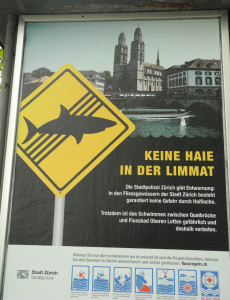A few months ago, for purposes that will remain clouded in mystery for the moment, I had the occasion to compose an ideal list of rare books of various kinds, which do not necessarily exist.
Here is what I came up with:
(i) “The Elements of the Most Noble game of Whist; elucidated and discussed in all details”, by A. Bandersnatch, Duke Dimitri, N. Fujisaki, A. Grothendieck, Y. Grünfiddler, J. Hardy, Jr., B. Kilpatrick and an Anonymous Person.
(ii) “Vorlesungen über das Ikosaeder und die Auflösung der Gleichungen vom funften Grade”, by F. Klein; with barely legible annotations and initialed “HW” on the first page.
(iii) “Histoire Naturelle”, Volume XXXIII: Serpens, by George Louis Leclerc, Comte de Buffon, edition of 1798; initialed “A.K.” on the title page.
(iv) “Chansons populaires de Corse, Navarre et Outre-Quiévrain”, collected and commented by P. Lorenzini.
(v) “奥の細道” (Oku no Hosomichi), by Matsuo Bashò.
(vi) “On the care of the pig”, by R.T. Whiffle, KBE.
(vii) “La Chartreuse de Parme”, by Stendhal.
(viii) “Der tsoyberbarg”, by T. Mann; Yiddish translation by I.B. Singer of “Der Zauberberg”.
(ix) “Les problèmes d’un problème”, by P. Ménard; loose manuscript.
(x) Opera Omnia of L. Euler, volumes 1, 2, 7, 11, 13, 23, 24, 30, 56, 62, 64, 65 and 72.
(xi) “Discorsi sopra la seconda deca di Tito Livio”, by N. Macchiavelli.
(xii) “An account of the recent excavations of the Metropolitan Museum at Khróuton, in the vicinity of Uqbar”, by E.E. Bainville, OBE.
(xiii) Die Annalen der Physik, volumes 17, 18, 23 and 25.
(xiv) “Diccionaro y gramática de la lengua Tehuelve”, anonymous; attributed on the second page to “a Humble Jesuit of Rank”.
(xv) “Le roi cigale”, French translation by Jacques Mont–Hélène of an anonymous English romance.
(xvi) “Mémoires du Général Joseph Léopold Sigisbert Hugo”, by himself, with an Appendix containing the “Journal historique du blocus de Thionville en 1815, et des sièges de cette ville, Sierck et Rodemack en 1815”.
(xvii) “Le Comte Ory”, full orchestral score of the opera by G. Rossini with Libretto by E. Scribe and Charles-Gaspard Delestre-Poirson.
(xviii) “Absalom, Absalom”, by W. Faulkner; first edition, dedicated To R.C. on the second page.
(xix) “Ficciones”, by J-L. Borges, third edition with page 23 missing.
(xx) “Die Gottardbahn in kommerzieller Beziehung”, by G. Koller, W. Schmidlin, and G. Stoll.
(xxi) “The etchings of the Master Rembrandt van Rijn, faithfully reproduced in the original size”, anonymous.
(xxii) “The memoirs of General S.I. Kemidov”, by Himself.
(xxiii) “Catalogue raisonné des œuvres d’Anton Fiddler”, by W.B. Appel.
(xxiv) “Zazie dans le métro”, by R. Queneau.
(xxv) “The mystery of the green Penguin”, by E. Mount.
(xxvi) “Χοηφόροι” (The Libation Bearers), by Aeschylus; an edition printed in Amsterdam in 1648.
(xxvii) “The Saga of Harald the Unconsoled”, Anonymous, translated from the Old Norse by W.B. Appel.
(xxviii) “Uncle Fred in the Springtime”, by P.G. Wodehouse.
(xxix) “The Tempest”, by W. Shakespeare.
(xxx) “The 1926 Zürich International Checkers Tournament, containing all games transcribed and annotated according to a new system”, by S. Higgs.
(xxxi) “A day at the Oval”, by G.H. Hardy.
(xxxii) “Harmonices Mundi”, by J. Kepler, initialed I.N on the second page.
(xxxiii) “Stories of cats and gulls”, by G. Lagaffe.
(xxxiv) “Traité sur la possibilité d’une monarchie générale en Italie”, by N. Faria; loose handwritten manuscript on silk.
(xxxv) “Broke Down Engine”, 78 rpm LP record, interpreted by Blind Willie McTell.
(xxxvi) “Les plages de France, Belgique et Hollande”, by A. Unepierre.
(xxxvii) “La Légende du Cochon Voleur et de l’Oiseau Rageur”, traditional folktale, translated from the Arabic by P. Teilhard de Chardin.
(xxxviii) “Discours des Girondins”, collected and transcribed by a parliamentary committee under the auspices of the “Veuves de la révolution française”, published by Van-den-Broeck, Bruxelles in 1862.






